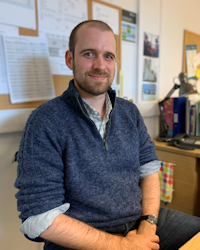Consolidation Week: Learning Community Newsletter
Posted on 30 October 2023

Consolidation week is here everybody. A bit of a break in pace but a good chance to catch up on projects. For those of you looking to brush up on your study skills the Library is running several workshops this week.
This week also sees the first meeting of the Anti-Colonial Reading Group - A student-led group reading anti-colonial literature - at 5pm Tuesday 31st in SLB/204.
As usual, the Coffee Morning will be on Wednesday from 09:30-11:00 in the Politics Reception. Do come along for a free pastry and a cup of coffee.
More Importantly Shut-up and Write sessions will be in SLB/006 on Tuesday from 14:00-16:00. With formative deadlines soon these are a great opportunity to get some focussed writing done in a supportive environment.
Finally, PolSoc is setting up a toiletry and sanitary item collection on behalf of Refugee Action York. They have stressed the need for shampoo, conditioner, shower gel, body spray, deodorant, shaving foam, toothpaste, toothbrushes and sanitary pads. The drop-off point is the Politics Department reception, from 6th-18th November. Please donate if you can.
John Evemy (Learning Community Officer)
Events
What's scarier: Drugs or drug policy?
Thursday 2 November 7pm - 8:30pm
D/N/056
York Global Affairs (YGA) welcomes three distinguished academics: Dr Coree Brown Swan (University of Stirling), Dr Daniel Cetrà (University of Barcelona), and Dr Robert Leñiera (University of Glasgow) for a panel event delving into the realm of Secession, Self-Determination, and Independence Movements. This panel event and Q&A will discuss the historical context of events and influential figures that have shaped the discourse on self-determination, as well as providing a variety of perspectives on a range of contemporary cases, such as Catalonia and Scotland, and what the future might hold for sub-state nationalism.
Institutional responses to shrinking academic spaces in Latin America
Friday 3 November 2023 2pm to 3pm,
Current human rights violations and attacks on academic freedom in Latin America take different forms and evidence the multiple past—and present—attempts to silence the academic community, in particular the most outspoken sectors. Demands and mobilisations for increases in the education budget, or at least for the non-reduction of the current budget, along with many other social and educational demands, have resulted in threats, persecutions and attacks on faculty members and student organisations from public universities in several Latin American countries. The violence against the academic community also consists of individual aggressions against specific professors or researchers, who in most cases have raised a critical voice and have been subject to significant public exposure.
In this presentation, Dr Rosario Figari Layús examines the cases of Brazil and Colombia and analyses university reactions when staff and students are being attacked or in a situation of risk. What measures are adopted by universities in these countries to deal with security challenges faced by scholars at risk and to guarantee academic freedom? How effective and sustainable are these measures? What are the consequences and impacts of such institutional actions in these cases?
Keep in touch!
